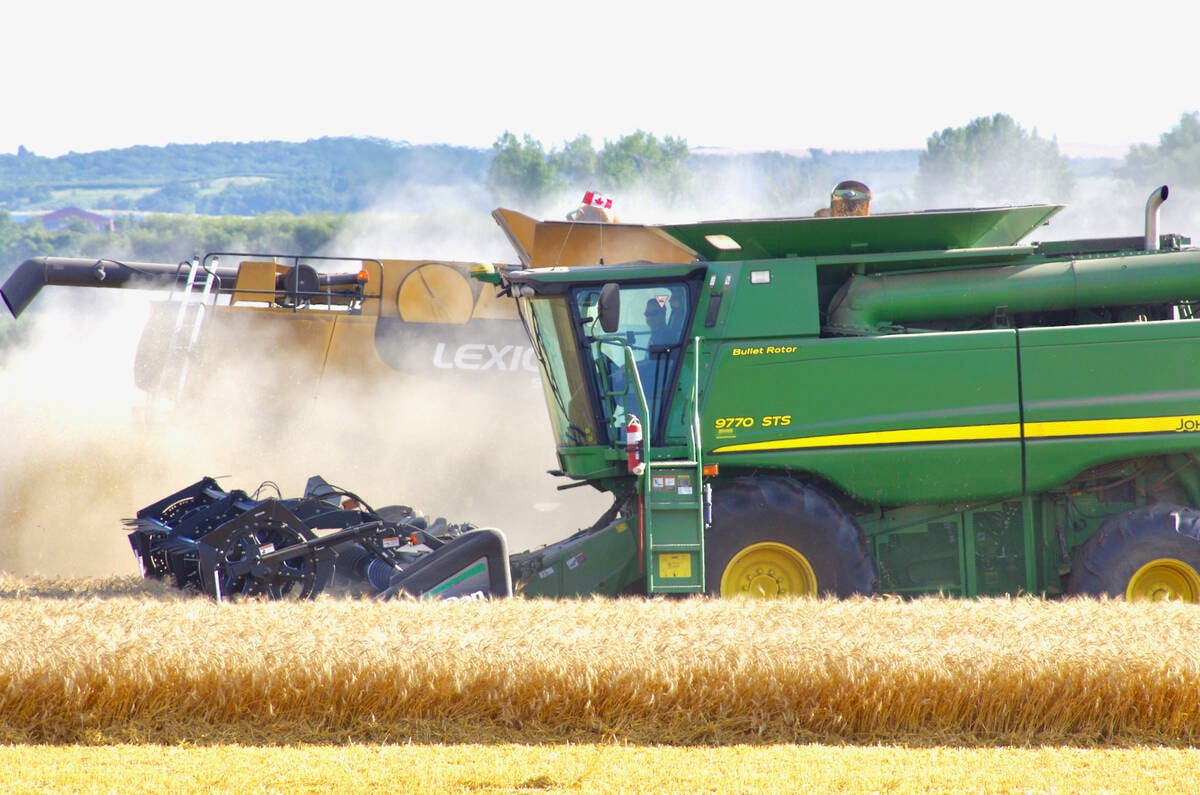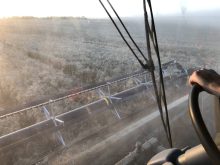Just months after a record-setting harvest, delegates nodded as market analyst Larry Webber told Saskatchewan farmers at CropSphere in Saskatoon, “Everything is not rosy in the country.”
Frustration is building as many farmers are taking large price discounts to sell their grain into a congested transportation system and other farmers are unable to sell their grain at any price in the next few months. Not only are farmers with unsold grain inventories in need of cash to pay last years’ bills and buy inputs for spring seeding, they’re also watching market prices fall.
Read Also

Prairie Wheat Weekly: Most Western Canadian bids higher
Western Canadian wheat prices were higher on Oct. 16, 2025 compared to the past week.
At SaskCanola’s annual general meeting, transportation led the list of top industry issues presented by chair Joan Heath. “It might look from the outside that farm groups don’t care about this,” she said. But in reality, “there are a lot of farm leaders that have worked in transportation for well over 25 years.”
In the short term, there was no good news for CropSphere delegates on the transportation front. “The transportation sector is going to be absolutely under pressure for the next 18 months,” said Webber.
Webber didn’t lay blame for transportation problems solely on railways, but also on farmers, for failing to contract grain sales earlier in the season and on a lack of storage capacity at West Coast terminals. “We’ve got 22 vessels that are tied up in Vancouver right now waiting for product.”
Basis levels, the amount farmers pay to have their grain handled by terminals and shipped to the market, are currently high. “Until we get our grain transportation rectified, I don’t see basis levels getting any better,” Webber said.
Frustrated farmers are bearing the cost. Webber said. “If this doesn’t get rectified, we’re probably out, on average, $40 a tonne.”
Farm Credit Canada, the federal ag lender, on Thursday pledged to contact over 16,000 customers “potentially impacted” by grain delivery delays, to explore options to reduce impact on their businesses.
The lender also said it would encourage those who haven’t done so to consider applying to the federal Advance Payments Program.
Terry Whiteside, a transportation and marketing consultant, told farmers at CropSphere that a lot of railway congestion is due to increased oil shipments, and that North Dakota farmers are facing similar problems. “We’re having an absolute service meltdown on the Burlington Northern in the United States.”
Whiteside encouraged farmers to work together to deal with the railroads and to lobby government to build more transparency into the transportation system.
“The railroads are doing what they’re allowed to do,” he said. “You’ve got to get the government to recognize that there is a public service component here.”
CropSphere, a two-day conference hosted by the Saskatchewan Pulse Growers, SaskCanola, the Saskatchewan Oat Development Commission, SaskFlax, the Saskatchewan Wheat Development Commission and the Saskatchewan Barley Development Commission, took place in Saskatoon on Tuesday and Wednesday.
— Leeann Minogue is editor of Grainews at Griffin, Sask. Includes files from AGCanada.com Network staff.
Related stories:
Logistics issues weigh on canola, Jan. 15, 2014
Rail transportation adds to market woes, Jan. 6, 2014
Moving the grain, Jan. 6, 2014












